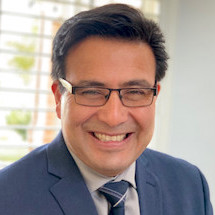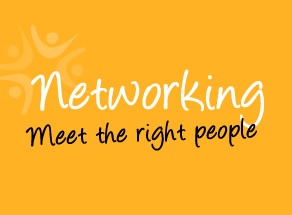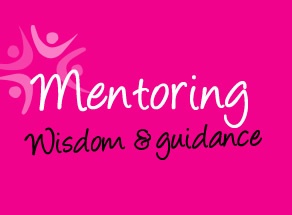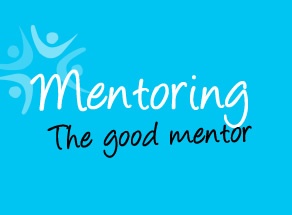
Bringing People Together for the Best Possible Outcome
04/23/2021 06:00AM | 3231 viewsDo you ever think about all the different things that have to be in place when you visit your doctor?
The gloves, x-ray machines, thermometers, printers and ink …
The clean offices, safety signs, specialized solutions, and language translators …
The computers, chairs, trash cans and rugs …
The elevators, parking structures, shuttles and fuel …
For most of us those necessary items are simply there, in place when we need them – thanks to people like Mario Munoz. He is executive director of procurement and supply chain management for City of Hope, a world leader in the research and treatment of cancer, diabetes and other life-threatening diseases.
“My team and I bring together buyers and sellers to get the best deal for the organization we represent,” said Munoz.
He leads the team in charge of procuring anything and everything that the organization needs. For a medical institution like City of Hope, that ranges from medical equipment and supplies to tech hardware and software … from construction materials to food, plates and utensils … from vehicles and their parts to consultants with expertise across the medical, research and administrative parts of the business.
“For example, right now we have construction on our campus, so we have a shortage of staff parking, as we put our patients first,” said Munoz. “My team negotiated a contract with the nearby Irwindale Speedway to allow staff to park there, and also for the security around that. ”
Getting the best possible deal is not only about price. He looks at it from the perspective of the total cost of ownership of whatever is being procured. That includes warranty, service, product performance, maintenance, installation, delivery – anything that is involved in getting the product or service delivered and that will affect the price over time.
“You want everyone to end up with best possible deal, from both a supplier and buyer standpoint,” he said. “It’s important not to alienate suppliers or take advantage.”
Early Experience in Negotiations
Born in Guatemala and raised from age 13 in Southern California, Munoz started honing his negotiation skills in his youth.
“There was a language barrier for my mom, so I took on the role of leading negotiations for things like our rent and even buying my own car at age 16,” he said. “I started acquiring these skills from an early age.”
Munoz earned a bachelor’s degree in accounting from California State University of Long Beach, then worked as an auditor for a few years. But he said that didn’t quite fulfill him: “I was not living up to my full potential. I wanted to help organizations save money and make major acquisitions.”
A pivotal moment came when he was auditing an organization and investigating embezzlement. It turned out the embezzlement was related to the process of purchasing. He saw that there were many things that could have been done differently to avoid that situation. With some training, he saw himself being able to influence those types of transactions.
“I felt like I could be doing a lot more in terms of helping organizations prevent these issues from happening,” he said. “Beyond that, I could also help organizations end up with much better outcome in terms of utilization of the dollars that are available.”
Accounting provided a great background, because he already understood controls, risks and financial statements. What he needed was formal training in process and negotiations. So he enrolled in an MBA program that specialized in supply chain management – one of the first such programs in the country. He earned an MBA in supply chain and business information systems from Michigan State University’s Eli Broad College of Business, and got valuable professional training to do this work.
He brought his new expertise to Accenture as a Consulting Manager for two years and then moved on to Anthem, Inc., first as a director of strategic sourcing and then moving up to staff vice president for 11 years. He joined City of Hope in 2019 as executive director of procurement and supply chain management.
When asked about the impact of the work of his team, he said the best compliment he can get is when he has repeat customers.
“When somebody comes back to us and invites us to sit down with them, talk about the issues they’re having, and brainstorm different alternatives together – that cooperation means they truly value what we’re doing,” said Munoz. “Being able to sit at the table with our partners and think through things and develop strategies – when people do that, it means they trust us to identify solutions together.”
The Doors Are Open
Munoz said he sees very few Hispanic professionals in supply chain management, which he attributes to a lack of information about the field.
“Don’t let yourself be discouraged if you don’t see many who look like you in the business meetings,” he said. “I’ve encountered many people, and few have the same background as me. But we all have the potential to succeed and the doors are open.”
His advice:
- Find people and mentors who will help you. He said there are many senior-level individuals who are willing to provide advice, because they’ve all had their entry level lob and traveled that road.
- Build your network by leveraging the resources that are available, not only in your company but also outside – with LinkedIn and various professional organizations.
- Consider work-life balance when choosing a career. His early work in consulting was a phenomenal job, but it wasn’t the right balance for his family.
He explains the importance: “I had to balance to find fulfillment in my work life, but also ensure I was there with my family. It was extremely important for me to have dinner together as a family as much as possible.”
Thanks to that balance, Munoz has been able to spend years enjoying biking, snowboarding and hiking together with his wife and three children.
Talk about bringing people together for the best possible outcome. It doesn’t get much better than that.






Post your Comment
Please login or sign up to comment
Comments